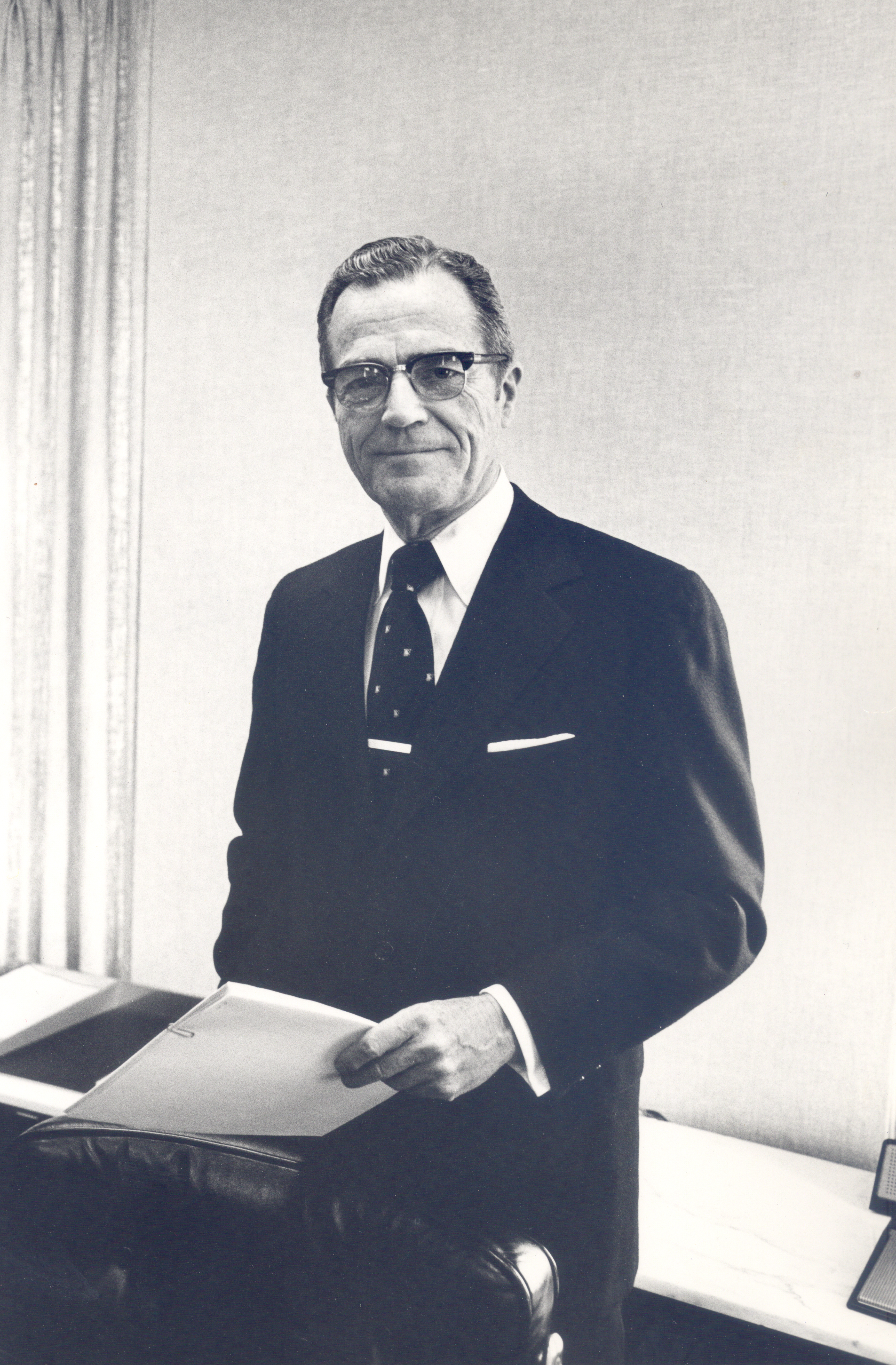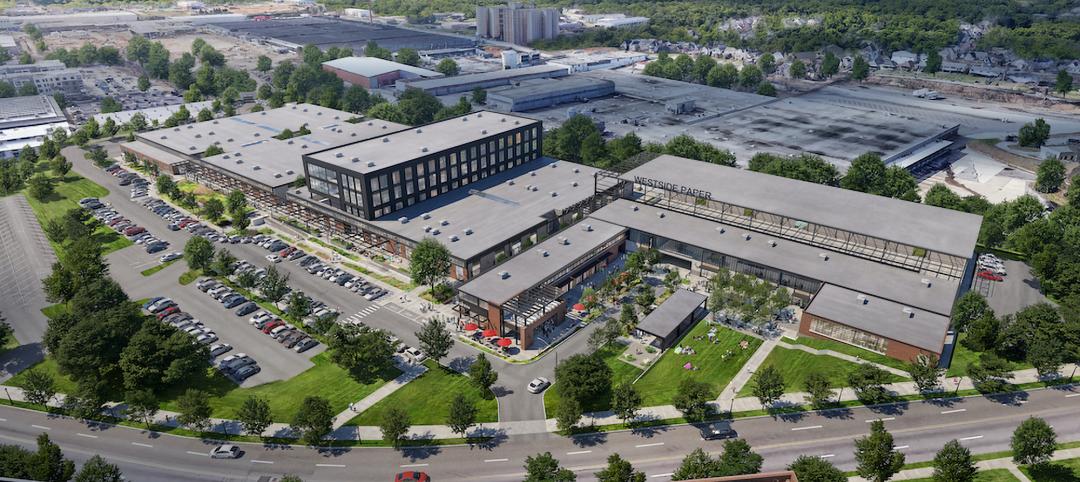Howard Sinclair Turner recently passed away after a short illness at Bryn Mawr Hospital at the age of 100. He was the last member of the founding Turner family to take the helm of the Turner Construction Co., one of the largest international construction management companies.
Turner Construction was founded in 1902 by Howard Turner’s uncle, Henry Chandlee Turner and quickly found its niche in the construction industry using the new material of reinforced concrete.
Born in Jenkintown, Pennsylvania in 1911, Howard Turner was the second of three sons of J. Archer Turner, Jr, who was President of the Turner Construction from 1941 to 1946. Howard graduated from Swarthmore College in 1933 and was subsequently elected an honorary member of Phi Beta Kappa. He completed a doctorate in organic chemistry and chemical engineering in 1936 from the Massachusetts Institute of Technology (MIT). He married Katharine (Kay) Swett, whom he met on a blind date, and they remained married until her death in 2003.
After graduating from MIT, Turner worked as a research chemist with the DuPont Corp. where he worked on novel uses, including for parachutes and food packaging, of a new synthetic material – nylon. He then joined Pittsburgh Consolidation Coal Co. in 1946 to lead their new research and development division. In 1954, Turner joined Jones & Laughlin Steel Co. as the vice president of research and development.
Turner joined the Board of Directors of Turner Construction in 1952. In 1965, he was selected to serve as President of Turner Construction. He served as President and Chief Executive Officer from 1968 to 1971. Turner served as Chairman of the Board from 1971 to 1978. From 1978 to 1982, he served as Chairman of the Executive Committee.
Under his leadership, the company grew from seven offices in the U.S. to operations in 20 cities; the company’s community affairs program was formalized and the Turner School of Construction Management for minorities and women was established; and the company’s international division was launched with operations in four countries. The company's sales grew from $591 million in 1965 to $1.7 billion by 1978.
Turner was also very active outside his responsibilities as the leader at Turner Construction. He served as a director of GAF, Teacher’s Insurance and Annuity Assoc., Ingersoll Rand, ASARCO, Dime Savings Bank of New York, and Jones and Laughlin. He was a trustee of the Wistar Research Institute, Swarthmore College, Rockefeller Institute, and Washington College. At the request of various administrations, he was a member of technical advisory committees for the Department of Commerce and the Post Office. Of note, he served on President Nixon’s Science Advisory Committee until it was dissolved when the members disagreed with the President in testimony before Congress. In 1966, he traveled with a delegation to Vietnam to develop a report on developing health, education, agriculture by President Johnson. He was elected to membership of the National Academy of Engineering in 1983, one of the proudest achievements of his remarkable career. Always quite humble about his scientific abilities, Turner’s view was that his greatest contribution was the ability to connect research with application.
Through the years of his marriage to Kay, they were inveterate travelers to Europe, Asia, Central and South America, and Australia. At the age of 82, he traveled to the North Pole on a nuclear-powered Russian ice breaker. He is survived by his three daughters, Susan Turner, a social worker of Boston, Holly Turner, a lawyer, (Don Carmichael) of Edmonton, Canada and Barbara Jean Turner, a physician-researcher, (Francisco Gonzalez-Scarano) of San Antonio, formerly of Wallingford and a Professor at the University of Pennsylvania, as well as seven grandchildren and four great grandchildren.
A Memorial Service after the manner of Friends will be held on Saturday, May 5th at noon at the Swarthmore Meeting House with a reception to follow. Donations in lieu of flowers can be made to the American Friends Service Committee or the Carter Center. BD+C
Related Stories
Industry Research | Jan 23, 2024
Leading economists forecast 4% growth in construction spending for nonresidential buildings in 2024
Spending on nonresidential buildings will see a modest 4% increase in 2024, after increasing by more than 20% last year according to The American Institute of Architects’ latest Consensus Construction Forecast. The pace will slow to just over 1% growth in 2025, a marked difference from the strong performance in 2023.
Giants 400 | Jan 23, 2024
Top 110 Medical Office Building Architecture Firms for 2023
SmithGroup, CannonDesign, E4H Environments for Health Architecture, and Perkins Eastman top BD+C's ranking of the nation's largest medical office building architecture and architecture engineering (AE) firms for 2023, as reported in the 2023 Giants 400 Report.
Giants 400 | Jan 22, 2024
Top 100 Outpatient Facility Architecture Firms for 2023
HDR, CannonDesign, Stantec, Perkins&Will, and ZGF top BD+C's ranking of the nation's largest outpatient facility architecture and architecture engineering (AE) firms for 2023, as reported in the 2023 Giants 400 Report. Note: This ranking includes design revenue for work related to outpatient medical buildings, including cancer centers, heart centers, urgent care facilities, and other medical centers.
Construction Costs | Jan 22, 2024
Construction material prices continue to normalize despite ongoing challenges
Gordian’s most recent Quarterly Construction Cost Insights Report for Q4 2023 describes an industry still attempting to recover from the impact of COVID. This was complicated by inflation, weather, and geopolitical factors that resulted in widespread pricing adjustments throughout the construction materials industries.
Transit Facilities | Jan 22, 2024
Top 40 Transit Facility Architecture Firms for 2023
Perkins&Will, HDR, Gensler, Skidmore, Owings & Merrill, and HNTB top BD+C's ranking of the nation's largest transit facility architecture and architecture engineering (AE) firms for 2023, as reported in the 2023 Giants 400 Report. Note: This ranking includes design revenue for work related to bus terminals, rail terminals, and transit stations.
Hotel Facilities | Jan 22, 2024
U.S. hotel construction is booming, with a record-high 5,964 projects in the pipeline
The hotel construction pipeline hit record project counts at Q4, with the addition of 260 projects and 21,287 rooms over last quarter, according to Lodging Econometrics.
Modular Building | Jan 19, 2024
Virginia is first state to adopt ICC/MBI offsite construction standards
Virginia recently became the first state to adopt International Code Council/Modular Building Institute off-site construction standards.
Office Buildings | Jan 19, 2024
How to strengthen office design as employees return to work
Adam James, AIA, Senior Architect, Design Collaborative, shares office design tips for the increasingly dynamic workplace.
Modular Building | Jan 19, 2024
Building with shipping containers not as eco-friendly as it seems
With millions of shipping containers lying empty at ports around the world, it may seem like repurposing them to construct buildings would be a clear environmental winner. The reality of building with shipping containers is complicated, though, and in many cases isn’t a net-positive for the environment, critics charge, according to a report by NPR's Chloe Veltman.
Adaptive Reuse | Jan 18, 2024
Coca-Cola packaging warehouse transformed into mixed-use complex
The 250,000-sf structure is located along a now defunct railroad line that forms the footprint for the city’s multi-phase Beltline pedestrian/bike path that will eventually loop around the city.

















